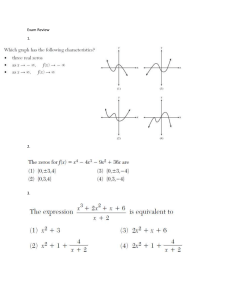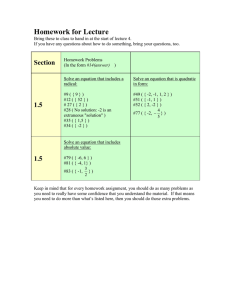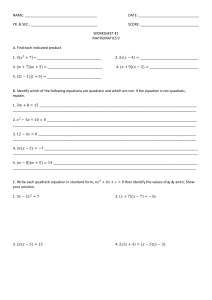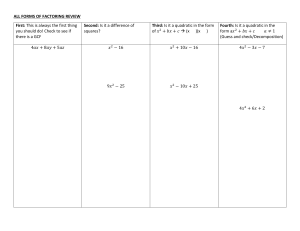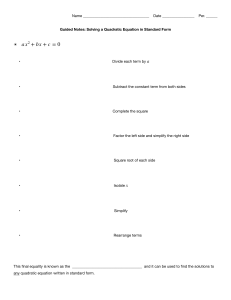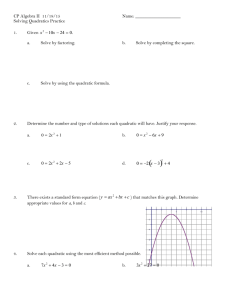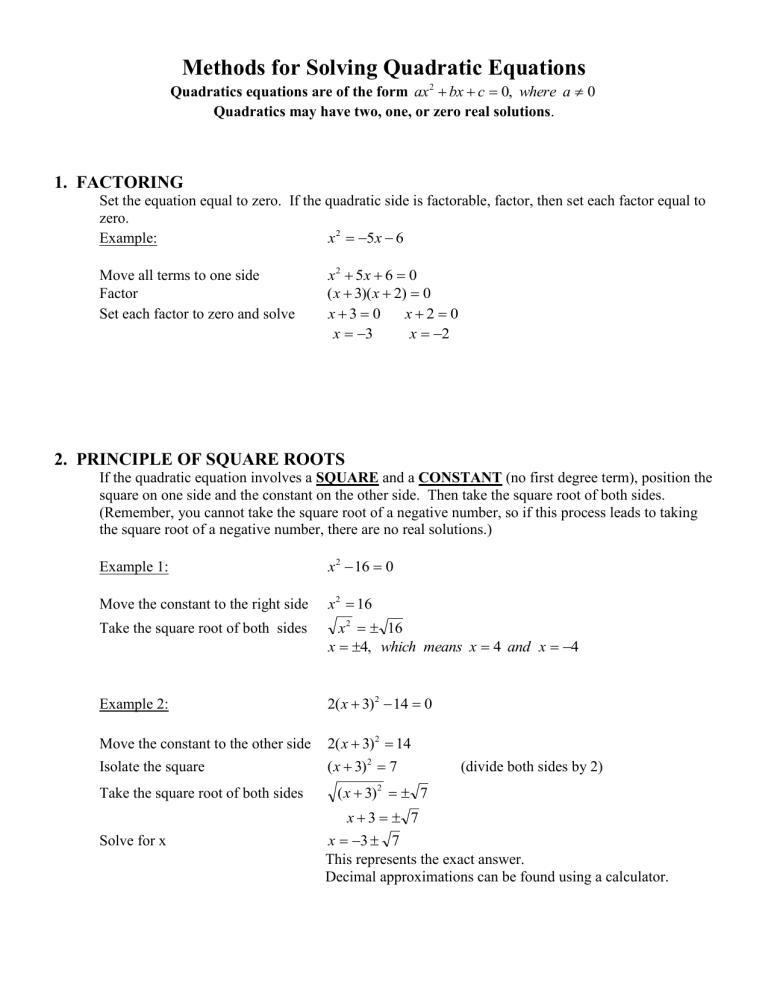
Methods for Solving Quadratic Equations Quadratics equations are of the form ax 2 bx c 0, where a 0 Quadratics may have two, one, or zero real solutions. 1. FACTORING Set the equation equal to zero. If the quadratic side is factorable, factor, then set each factor equal to zero. Example: x 2 5x 6 Move all terms to one side Factor Set each factor to zero and solve x 2 5x 6 0 ( x 3)( x 2) 0 x3 0 x2 0 x 3 x 2 2. PRINCIPLE OF SQUARE ROOTS If the quadratic equation involves a SQUARE and a CONSTANT (no first degree term), position the square on one side and the constant on the other side. Then take the square root of both sides. (Remember, you cannot take the square root of a negative number, so if this process leads to taking the square root of a negative number, there are no real solutions.) Example 1: x 2 16 0 Move the constant to the right side x 2 16 Take the square root of both sides x 2 16 x 4, which means x 4 and x 4 Example 2: 2( x 3)2 14 0 Move the constant to the other side Isolate the square 2( x 3)2 14 ( x 3)2 7 Take the square root of both sides Solve for x (divide both sides by 2) ( x 3)2 7 x3 7 x 3 7 This represents the exact answer. Decimal approximations can be found using a calculator. 3. COMPLETING THE SQUARE If the quadratic equation is of the form ax 2 bx c 0, where a 0 and the quadratic expression is not factorable, try completing the square. Example: x 2 6 x 11 0 **Important: If a 1 , divide all terms by “a” before proceeding to the next steps. x 2 6 x _____ 11 _____ Move the constant to the right side and supply a blank on each side b Find half of b, which means : 2 2 b Square half of b: : 2 6 3 2 32 9 2 b Add to both sides of the equation x 2 6 x 9 11 9 2 Factor the quadratic side ( x 3)( x 3) 20 (which is a perfect square because you just made it that way!) Then write in perfect square form ( x 3)2 20 ( x 3)2 20 Take the square root of both sides x 3 20 x 3 20 Solve for x Simplify the radical x 3 2 5 This represents the exact answer. Decimal approximations can be found using a calculator: 1.472 and -7.472 4. QUADRATIC FORMULA Any quadratic equation of the form ax 2 bx c 0, where a 0 can be solved for both real and imaginary solutions using the quadratic formula: x b b 2 4ac 2a x 2 6 x 11 0 Example: ( a 1, b 6, c 11) Substitute values into the quadratic formula: 6 62 4(1)(11) x 2(1) x 64 5 2 x 6 36 44 2 x 6 80 2 simplify the radical x 3 2 5 This is the final simplified EXACT answer
